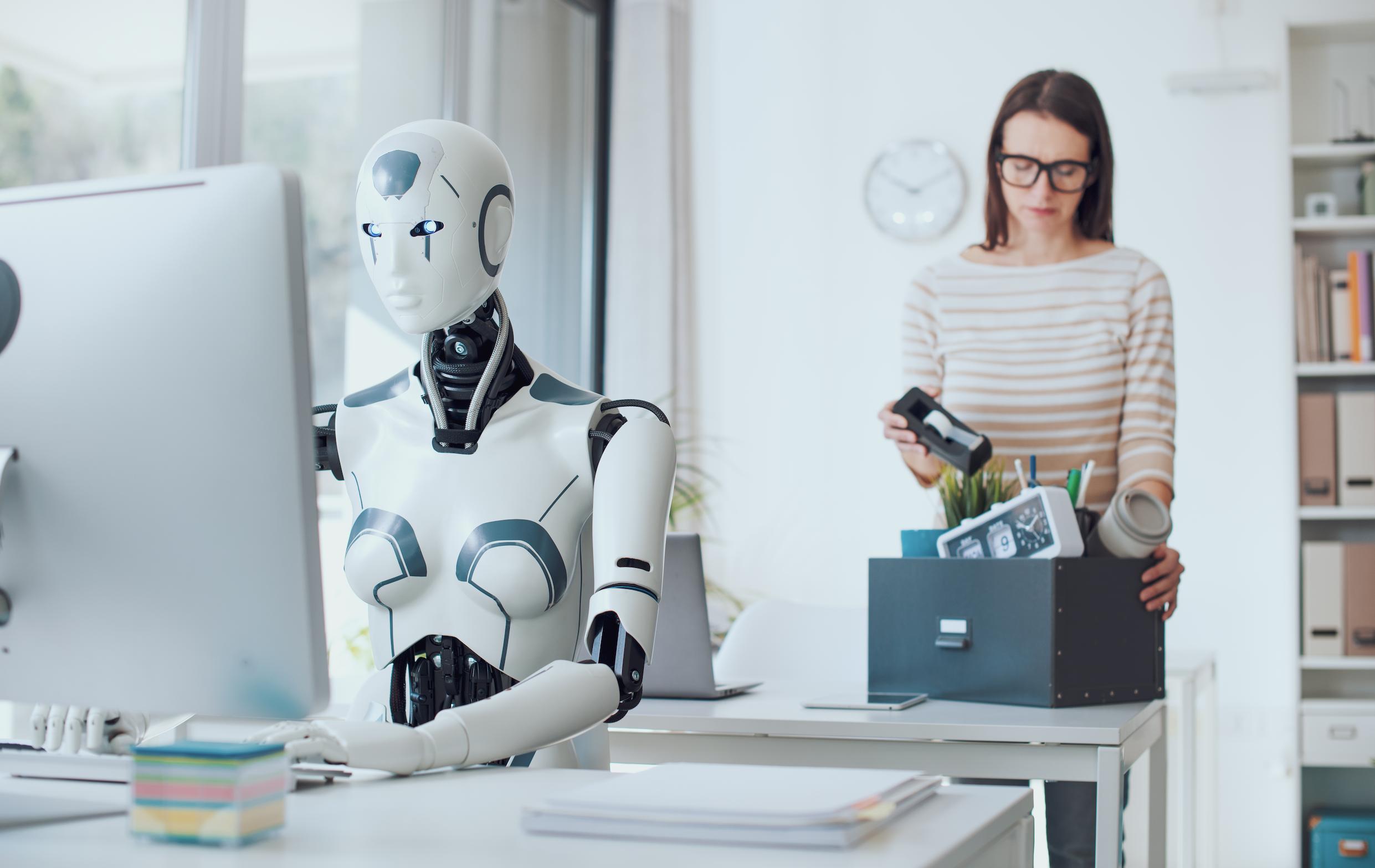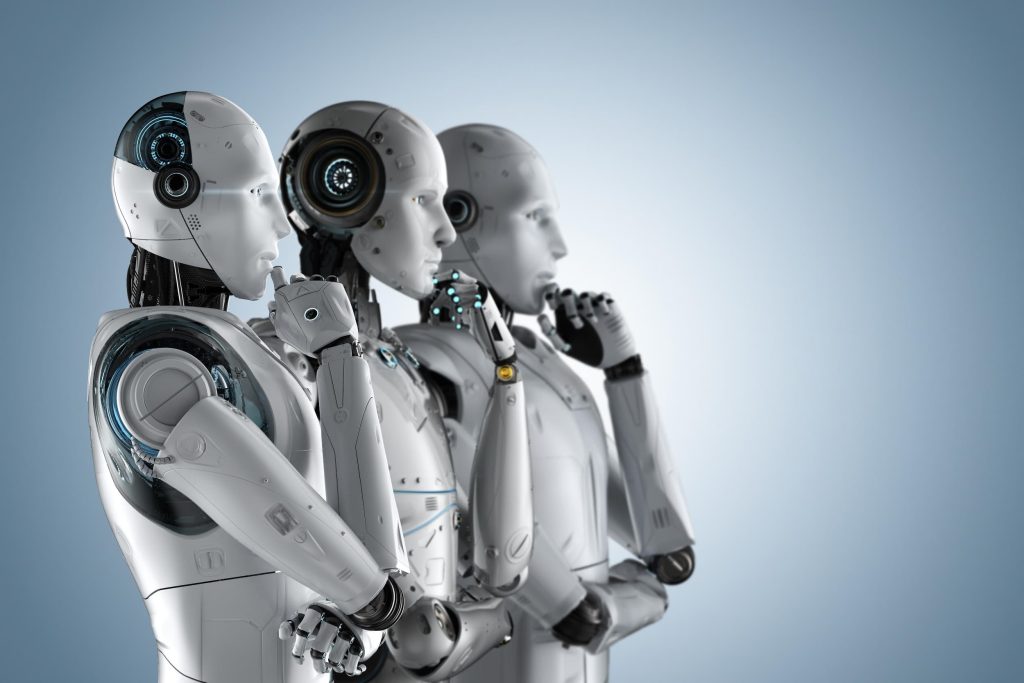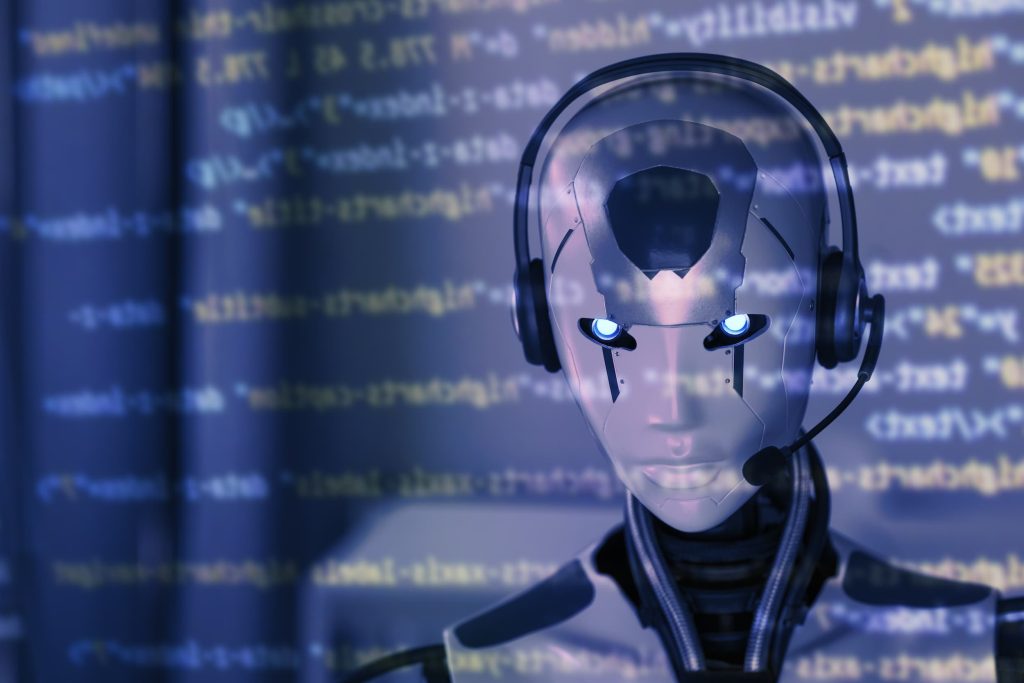Will AI Replace The Workforce? Exploring the Impact of Artificial Intelligence in the Jobs Sector
In this rapidly evolving AI landscape, there’s a common question on many minds: Will Robots Take My Job? The disruptor that is ChatGPT and the rise of Artificial Intelligence has sparked both curiosity and concern about the future of work.
It’s important to understand the potential impact of AI by exploring the job landscape and the roles AI may replace.
Jobs AI Will Replace
The rapid advancements in AI technology have led to automation in various industries. There are going to be jobs that will be replaced by AI such as work that involves repetitive tasks, like data entry, assembly line work, and customer service, which are susceptible to automation.
However, it’s important to note that AI doesn’t necessarily replace entire jobs, but rather automates specific tasks within them. It also has the potential to create new opportunities and enhance existing roles. This allows humans to focus on more complex and creative aspects of their work.
Let’s explore three job roles that AI is expected to have a significant impact on:
1. Data Entry Clerks
AI-powered automation systems can quickly process and input vast amounts of data, eliminating the need for manual data entry clerks. By leveraging Machine Learning algorithms and Optical Character Recognition (OCR) technology, AI can extract information from documents and input it into databases with high accuracy and speed.
2. Customer Service Representatives
With advancements in Natural Language Processing (NLP) and Chatbot technology, AI is becoming increasingly capable of handling customer queries and providing support. AI-powered chatbots can understand and respond to customer inquiries, offering real-time assistance and reducing the need for extensive human intervention in customer service roles.
For example, Woolworths Chatbot, Olive, can process refunds for grocery items that were not included in your delivery.
3. Truck Drivers
The development of autonomous vehicles and self-driving technologies is poised to impact the trucking industry. As these technologies mature, AI-powered trucks have the potential to replace human truck drivers. However, it’s important to note that the transition may take time, and human oversight will most likely be required for complex situations or long-haul journeys.
While these examples highlight potential job roles that could be affected, it’s important to emphasise that AI is designed to augment human capabilities, not necessarily replace humans entirely. As AI continues to develop, it’s crucial to focus on upskilling and reskilling efforts to adapt to the changing job landscape and explore new opportunities that arise alongside AI advancements.
Jobs AI Can’t Replace
While AI can automate certain tasks, there are several roles that require uniquely human skills and qualities. Jobs that involve critical thinking, emotional intelligence, creativity, and complex problem-solving are less likely to be fully replaced by AI.
Professions like healthcare, education, art, and entrepreneurship rely on human intuition, empathy, and adaptability, which are difficult to replicate in machines.
The Human Element
One aspect where humans will continue to excel is in interpersonal interactions. Jobs that require building relationships, providing emotional support, and understanding nuanced human behaviours will remain vital. These roles include medical professionals, physical and emotional therapists, beauty and spa treatments, counsellors, and social workers who can connect on an emotional level.
The Future of Work
As AI and automation continue to advance, jobs will undoubtedly undergo significant transformations. However, history has shown that technological advancements often create new jobs and industries. AI has the potential to enhance productivity, create new job roles focusing on AI development and implementation, and lead to innovation in various sectors. It’s crucial for individuals to adapt and acquire skills that complement AI technologies to remain competitive in the job market.
Consider these jobs that AI will create.
1. AI Trainers
As AI systems become more advanced, the need for human experts to train and fine-tune these systems is growing. AI trainers will work closely with machine learning algorithms, providing guidance, feedback, and data to refine and improve AI models. These professionals will play a crucial role in ensuring that AI systems perform optimally and ethically.
2. AI Ethical Policy Developers
With the rise of AI comes the need for individuals who can address the ethical implications and societal impact of these technologies. AI ethicists will grapple with challenging questions, such as fairness, bias, and accountability in AI systems. Their expertise will help shape the development and deployment of AI in a responsible and inclusive manner.
3. Business Strategists
AI is reshaping business operations and strategies across industries. AI business strategists will guide organisations in identifying opportunities to leverage AI technologies for competitive advantage. They will analyse data, trends, and industry insights to develop AI-driven strategies that enhance efficiency, profitability, and customer experience.
As AI continues to evolve, new opportunities will emerge, and with the right skills and adaptability, individuals can embark on enriching careers at the forefront of this transformative technology.
Resilience and Adaptability
Rather than fearing job replacement, it’s savvy to embrace opportunities that arise from the integration of AI. Develop a growth mindset and cultivate skills that are highly valuable in a technology-driven world. Skills such as critical thinking, creativity, emotional intelligence, and the ability to work collaboratively are valuable assets that can complement AI technologies.
While AI will undoubtedly have an impact on the job landscape, the complete replacement of humans is impractical. Instead, AI has the potential to augment human capabilities and improve efficiency across industries. By embracing a growth mindset, nurturing uniquely human skills, and staying abreast of technological advancements, individuals can navigate the future of work with confidence.






